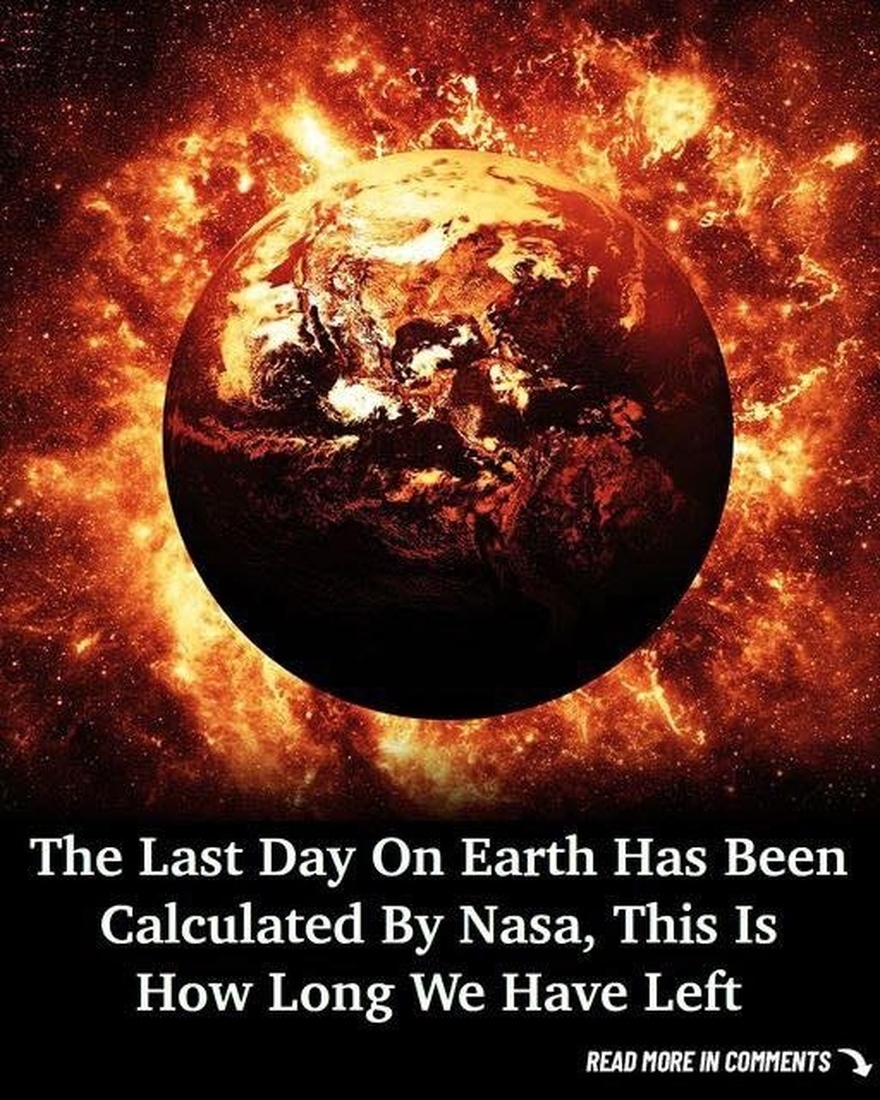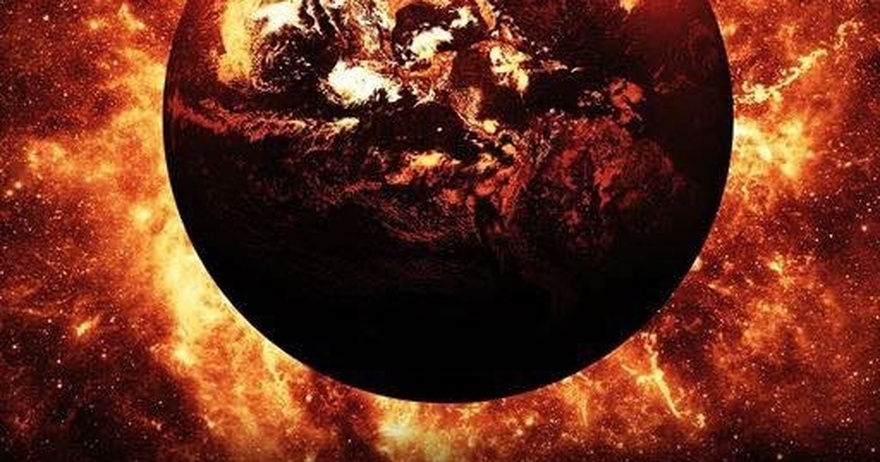The universe is an infinite, miraculous, unexplored place filled with the great unknown. In this universe lies the solar system, which holds the incredible planet we call home: earth.
The stars and galaxies that exist in outer space are beautiful and fascinating, but the existence of planet earth is the sole reason humans have thrived since the beginning of time. Without this globe, life could not be sustained, and scientists predict that it is dying and we don’t have a lot of time left. In fact, NASA has calculated the day when all life on Earth will cease to exist.
NASA has calculated that life on Earth has around 1.5 billion years left before it becomes uninhabitable. While the planet will be consumed by the Sun in about 5 billion years, the real threat comes sooner. As the Sun ages, it gradually gets hotter and brighter, leading to rising global temperatures. This will cause intense heatwaves, droughts, and the eventual evaporation of Earth’s oceans.
As more water vapor, a potent greenhouse gas, enters the atmosphere, the planet will experience a “moist runaway greenhouse effect,” accelerating global warming beyond the point where life can survive.In Earth’s final stages, it will resemble Venus, with scorching temperatures and an atmosphere stripped of moisture. The Sun, by then a red giant, may engulf the planet. This prediction highlights the finite nature of Earth’s habitability, underscoring the need for space exploration and the search for new homes for humanity.
NASA’s Answers To The Universe
An astronaut in space.
NASA / Unsplash
Planet earth is in an emergency state and extinction has become a serious threat to human life. Centuries ago, dinosaurs once walked the grounds we live on. Over time, we have seen the dying out of many animal species. Unless astronauts can find a new planet for us to survive on, mankind could be next in line.
NASA is the closest thing we have to answering questions about our existence here on earth. These astronomers and their advanced scientific technology have determined how much longer planet earth can continue sustaining humanity.
Risk Of Extinction
Planet earth hanging brightly in a dark, black sky.
NASA / Unsplash
It’s no secret that global warming has been heating up our planet. The news has been reporting cases of forest fires, melting glaciers, and unsteady weather conditions all over the globe in the past few recent years. While these tragedies have affected lives everywhere, they’re not even the worst of the sun’s effects.
NASA claims that humans are at a very real risk of extinction. Scientists fear that if they cannot locate somewhere else in the solar system that can survive human life, we are in serious danger …

Ground covered in red sand with a single lawn chair and sand basket.
Max Letek / Unsplash
ADVERTISEMENT
The sun is a beautiful star that provides us with vitamins, happiness, and hot summer days. But, this heavenly body is more dangerous than it appears. Scientists claim that the end of life as we know it will be caused by solar radiation.
The sun’s damage to our ecosystem is the most threatening environmental issue, but it’s not the only pressing matter. Computer simulations give scientists mathematical predictions on the state of the earth’s health, and they claim that it’s not looking good.
A space rocket shooting up into the air on a clear blue day.
SpaceX / Unsplash
ADVERTISEMENT
Even with state-of-the-art technology, not even modern operations can give scientists a guaranteed answer on how and when the earth will come to an end. However, NASA has been keeping their probable disaster date a secret for long enough.
ADVERTISEMENT
Take their answer with a grain of salt, because they cannot be sure. Mankind can be swept away sooner, later, or for a completely different cause. Due to these unanswered questions, scientists will not stop investigating.
1,000,002,021 years
A woman standing in front of a lit-up screen pointing at an image of the moon.
This Is Engineering RAEng / Unsplash
ADVERTISEMENT
NASA has tested the condition and state of planet earth with computer models over 400 times. These experiments have given astronomers close to accurate results about how much longer earth will be capable of sustaining life.
Deoxygenation is the silent killer that will supposedly take us down. But, don’t panic. The world will not see this happen for another 1,000,002,021 years.
No Way To Know For Sure
Just because this change will not take place on the planet during our lifetime doesn’t mean it won’t affect us. It’s important to be aware of the declining path that earth is foreseeing because it’s up to us to change the future.
Think about your great-grandchildren, and their great-grandchildren, who will live to experience the threat of extinction. Scientists believe that the longer global warming occurs, the more battles the planet will have to fight through for survival.






























